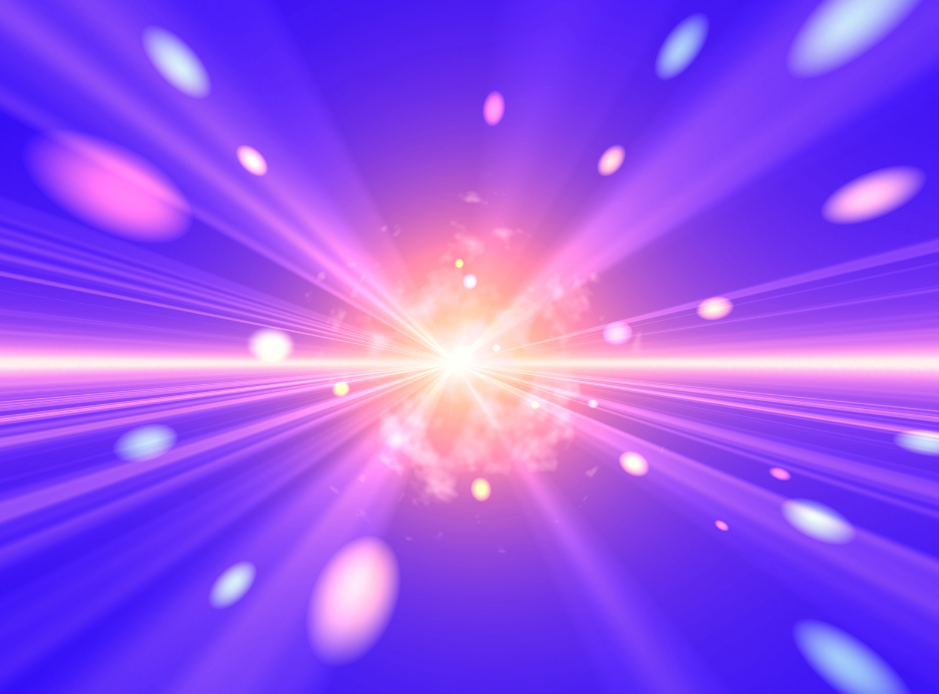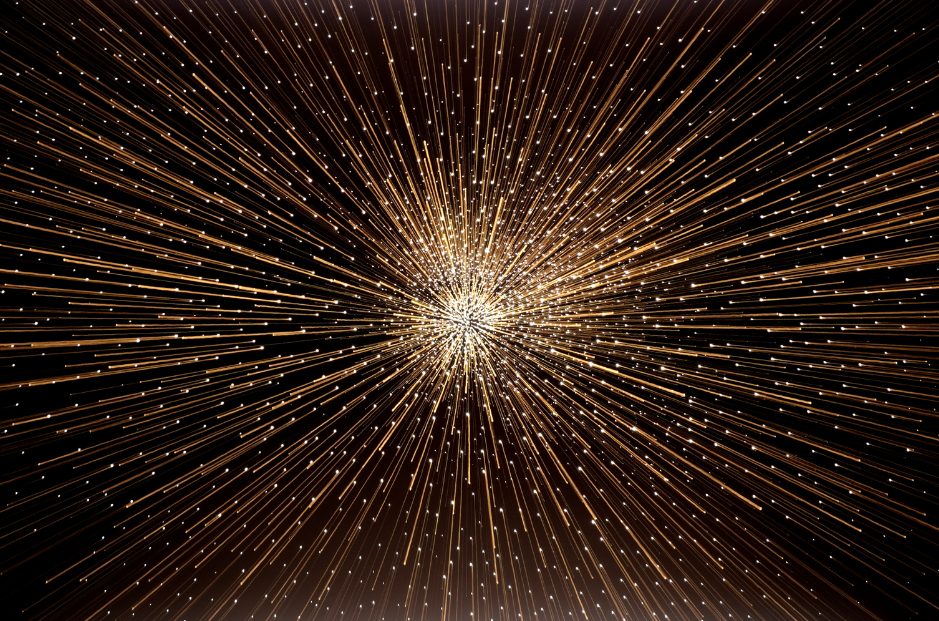
Lemaître’s work was based on the earlier theories of Willem De Sitter and Albert Einstein. In 1929, two years after Lemaître’s proposed theory, Edwin Hubble provided observational data to further reinforce the theory of an expanding universe, and thus a finite universe with a beginning.
While this is the currently accepted theory, the bedrock to the theory was not accepted without some resistance. Particularly the notion that the universe was finite and had a beginning. Theories dating back to antiquity, particularly those of Aristotle, proposed that the universe was infinite.
It was in opposition to this that both science and religion found rare common ground. Scientific observation and theory could not rest on an infinite universe. And the Abrahamic religions of Judaism, Islam and Christianity all found conflict in their faith with an infinite universe.
While science and religion do not agree on the origin of the universe, in most cases, they both agree that it had a beginning. The most recent opposition to this, was presented by Stephen Hawking and Rodger Penrose, who in the 1980’s proposed that the Universe was shaped like a shuttlecock, and had no beginning or end.
Has The Big Bang Happened More Than Once?
Some say that the universe we live in today isn’t the only universe that ever existed. Instead, there may have been other big bangs, other universe births, and other universes that were destroyed. Some even say that our universe came from another universe. Or that our Universe exists as one of infinite Universes in what is known as a Multiverse. Granted, there is much speculation in the mix here, but there are still so many questions that remain unanswered about the nature of the universe.
For example, while we think we know that the Universe is finite, that is has a beginning, we can not definitively say that space itself is finite. We can’t say this, because we cannot see the edge. It is outside our range of observation or the ‘observable universe’ as it’s called. There are many competing theories on whether space is infinite. It is something on which experts disagree often.
In another example, we know that the big bang has happened once, as a singularity giving birth to space and time. If it can happen once, why can’t it happen more than once? And if that is the case, how do we know that it hasn’t happened before? There are some that believe we can actually observe the remnants of a previous universe, Rodger Penrose suggested so in a hotly contested research piece in 2020.
When Did The Big Bang Happen?

The Big Bang is a background event, which means that it occurred at such a distance and long ago that we can only see the effects rather than the event itself. Since the universe is still expanding today, scientists can use the distance between objects to determine the age of the universe. Using this method, scientists have determined that the universe is roughly 13.8 billion years old. The new James Webb telescope will help us to see further back into the universe than ever possible before. Perhaps allowing us to answer some of the many questions we still have about the origins of our universe.
Are There Any Other Theories?
There are plenty of theories. And there will be many more to come as our understanding of the universe increases, through our ever expanding progress in the sciences. We simply know more now that we did when the original big band theory was introduced in the early to mid 20th century.
One of my favorite theories just now, is that of the Universe being a 3-manifold. That it came into existence through a collision of manifolds which created this bubble that we call the universe.
Another favorite is the multiverse theory, which itself can be seen as more than one theory. There is the theory that the multiverse consists of every infinite variation of the universe that we exist in. But then there is also the theory that the multiverse is every possible version not only this universe, but every possible version of every possible universe.
Alternatives To Big Bang Theory
Here are some of the most well known alternative theories:
Steady State Universe
The Steady State theory is the oldest rival to big bang theory, originating around the same time in the early 20th century. This theory champions the idea that the universe is ever expanding while maintaining exactly the same amount of density. That it expands in a uniform fashion, with matter in a continuous cycle of life, death and rebirth.
Simulation Theory
This theory got a lot of attention a few years back when Elon Musk seemed to suggest that it was possible, if not likely, despite the lack of any firm evidence. Simulation theory favors the idea that our universe is one giant simulation rather than what Musk coined as a ‘base reality’.
Black Hole Theory
There are those that suggest a multiverse theory that goes one step further. To suggest that universes are created by black holes. That our universe, exists within the event horizon of another universe or ‘multiverse’ where every black hole is essentially a door to another universe.
There are new theories popping up all the time, and that’s no bad thing. We are explorers, and we are students, learning as we go.
Our next major advances in this field are likely to come when we have a breakthrough in our understanding of dark matter and dark energy.
What Was Before The Big Bang?

The answer to this question remains one of life’s great mysteries. If you google the term ‘what was before the big bang’, you might end up scratching your head with more questions than answers. Lots of theories and few answers.
There are lots of physicists and cosmologists trying to figure this out. Depending on which origin theory they subscribe to, the results vary widely.
There are those that believe our universe will eventually expand so far and exhaust so much energy that activity will eventually cease completely. That this will be the end. While there are others that believe that when this happens, this void will be the source of a new universe. Just as the void of a dead previous universe was the source of our own.
A lot of great minds and a lot of great effort will be battling this question out for a very long time. Speculative physics can at times feel a lot like science fiction, as can quantum field theory. But these sciences are opening the door to new understandings about how things work. Offering new potential to the greatest questions. When we know the answer to this question, humanity will have come a very long way indeed.